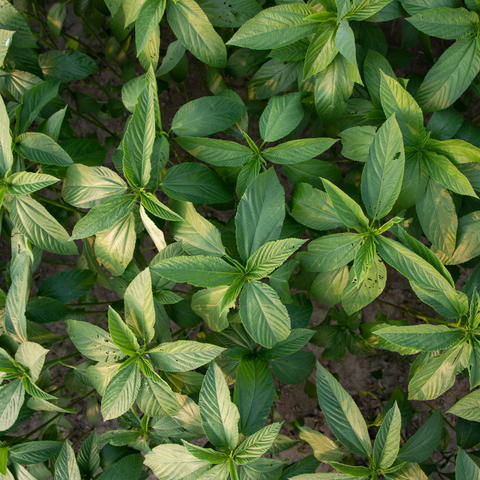Is it better to drink loose leaf tea or tea bags?
The answer to this question really depends on personal preference. Loose leaf tea offers a larger selection of teas, as well as the potential for higher quality and more flavorful teas. Tea bags tend to be convenient and quick, although the same type of tea is usually available in both loose leaf and bagged form. Both options have their pros and cons, so it really comes down to what you prefer. If you're looking for convenience, tea bags might be the way to go. Loose leaf tea is usually a better choice if you want more variety or a higher quality tea.Additionally, many companies offer compostable tea bags that are more eco-friendly than regular tea bags. Whatever you choose, make sure to check the packaging for brewing instructions so that your tea turns out perfect every time!
Happy sipping!
Regular tea bags or pyramid tea bags which is better?
The answer to this question comes down to personal preference. Pyramid tea bags offer a more spacious shape that allows your favorite loose leaf teas to open up and release more flavor and aroma. This can result in a bolder, tastier cup of tea compared to traditional tea bags. However, regular tea bags are usually cheaper and more convenient, so it all comes down to personal preference. Whichever you choose, make sure to follow the instructions on the packaging for optimal brewing. Happy sipping!
Which is healthier: drinking tea hot or cold?
The answer to this question depends on the type of tea you are drinking. Generally speaking, drinking tea hot or cold has no effect on its health benefits. However, some teas have different properties when brewed hot or cold. For example, green tea is known for being rich in antioxidants, and its brewing temperature can affect how many of those antioxidants are released into your cup. It is usually recommended to brew green tea at lower temperatures for optimal health benefits. On the other hand, teas have different properties when brewed hot or cold, so it's best to follow the instructions on the packaging for optimal results. Ultimately, both hot and cold tea can provide health benefits, so it comes down to personal preference. Enjoy your tea whichever way you prefer! Happy sipping!
Do you get the same nutrients when you reuse your tea bag?
No, you do not get the same nutrients when you reuse your tea bag. While reusing a tea bag can extract some of the flavor, much of the health benefits are likely to have been lost due to oxidation and evaporation during the first brewing. Additionally, reusing a tea bag can also increase its caffeine content, so it's best to avoid reusing a tea bag if you are sensitive to caffeine. To get the most out of your cup of tea, it’s best to use a new tea bag each time and follow the instructions on the packaging for optimal brewing time and temperature. Happy sipping!
Should children drink tea?
The answer to this question depends on the type of tea being consumed. Generally speaking, certain types of herbal teas, such as chamomile, ginger, and hibiscus, can be beneficial for children, as they are naturally caffeine-free and can provide vitamins and minerals. Caffeinated teas such as black or green tea should generally be avoided by children, as too much caffeine can have adverse effects. It is always best to consult a pediatrician before introducing tea into a child’s diet. Happy sipping!
Do some teas carry the same caffeine content as coffee?
Yes, some teas can contain the same amount of caffeine as coffee. Teas that come from the Camellia sinensis plant, such as black and green tea, can contain similar amounts of caffeine to a cup of coffee. Herbal teas, on the other hand, are naturally caffeine-free and don't contain any stimulants. It is best to check the caffeine content of your tea before consuming it, as some teas can contain more or less caffeine than others. Happy sipping!
Does the country where a tea is harvested affect the nutrient content of the tea?
Yes, the country where a tea is harvested can have an effect on its nutrient content. Different climates and soil types can produce teas with varying levels of antioxidants, vitamins, and minerals. Additionally, different harvesting processes can also affect the nutrients in tea leaves. For example, steaming or pan-firing tea leaves can cause some of the nutrients to be lost, while some processes can actually increase the nutritional content. To ensure that you are getting the most out of your cup of tea, it is best to buy from reputable sources and follow their instructions for optimal brewing time and temperature. Happy sipping!
How many cups of tea a day is recommended?
The amount of tea that should be consumed in a day varies depending on the type of tea consumed. For example, beverages containing caffeine may be limited to 1-2 cups per day, as excessive amounts can lead to adverse effects. Herbal teas, on the other hand, are generally considered safe and can be enjoyed in moderation. Ultimately, it is best to consult a healthcare professional before introducing large amounts of tea into your diet. Happy sipping!
Do herbal teas have any health benefits?
Yes, certain types of herbal teas can offer various health benefits.
What are the health benefits of drinking hibiscus tea?
Hibiscus tea is known for its many health benefits due to its high antioxidant content. It is known to help lower blood pressure, reduce cholesterol levels, reduce inflammation, aid digestion, and boost the immune system. Additionally, it has been found to have anti-aging properties due to its high levels of vitamin C and other antioxidants. For optimal health benefits, it is best to drink hibiscus tea freshly brewed with boiling water for four to five minutes. Happy sipping!
Does tea need to be brewed for a certain amount of time?
Yes, different types of tea should be brewed at different times in order to maximize their flavor and health benefits. Generally speaking, black teas should be brewed for 3-5 minutes, green teas for 2-3 minutes, and herbal teas for 4-5 minutes. However, some teas may require longer or shorter brewing times, so it is best to consult the instructions on the packaging before preparing your tea. Happy sipping!
Are there any health risks associated with consuming too much tea?
Yes, it is possible to consume too much tea, which can lead to health risks. Caffeinated beverages should be limited to 1-2 cups per day in order to avoid any adverse effects such as insomnia, headaches, and nervousness. If a person is sensitive to caffeine, they may need to limit their intake even further. Additionally, there may also be risks associated with consuming large amounts of certain herbal teas, so it is best to consult a healthcare professional before introducing large amounts of tea into your diet. Happy sipping!
Can different types of tea be combined?
Yes, different types of tea can be combined in order to create a unique flavor profile or enhance the health benefits of each type. Experimenting with blending tea is a great way to explore different flavor combinations and can result in some delicious teas. Some popular blends include black and green, chamomile and peppermint, and hibiscus and rooibos. Happy sipping!
What is the best way to store tea?
The best way to store tea is in an airtight container away from moisture, light, and heat. Additionally, it is important to keep the loose leaf or bagged teas firmly sealed in order to maintain their freshness and flavor. If stored properly, most teas can last up to a year before needing to be replaced. Happy sipping!
How can I make sure my tea is brewed correctly?
The best way to ensure that your tea is brewed correctly is to check the instructions on the packaging. Following these instructions will help you maximize the flavor and health benefits of the tea. Additionally, it is important to use freshly boiled water, as this can affect the taste of the tea. Happy sipping!
What is the recommended amount of tea that should be consumed daily?
The recommended amount of tea that should be consumed daily varies depending on a person’s individual needs and preferences. However, it is generally recommended to limit TEA consumption to 2–3 cups per day in order to avoid any adverse effects of caffeine or other components in TEA. Happy sipping!




Comments (0)
There are no comments for this article. Be the first one to leave a message!